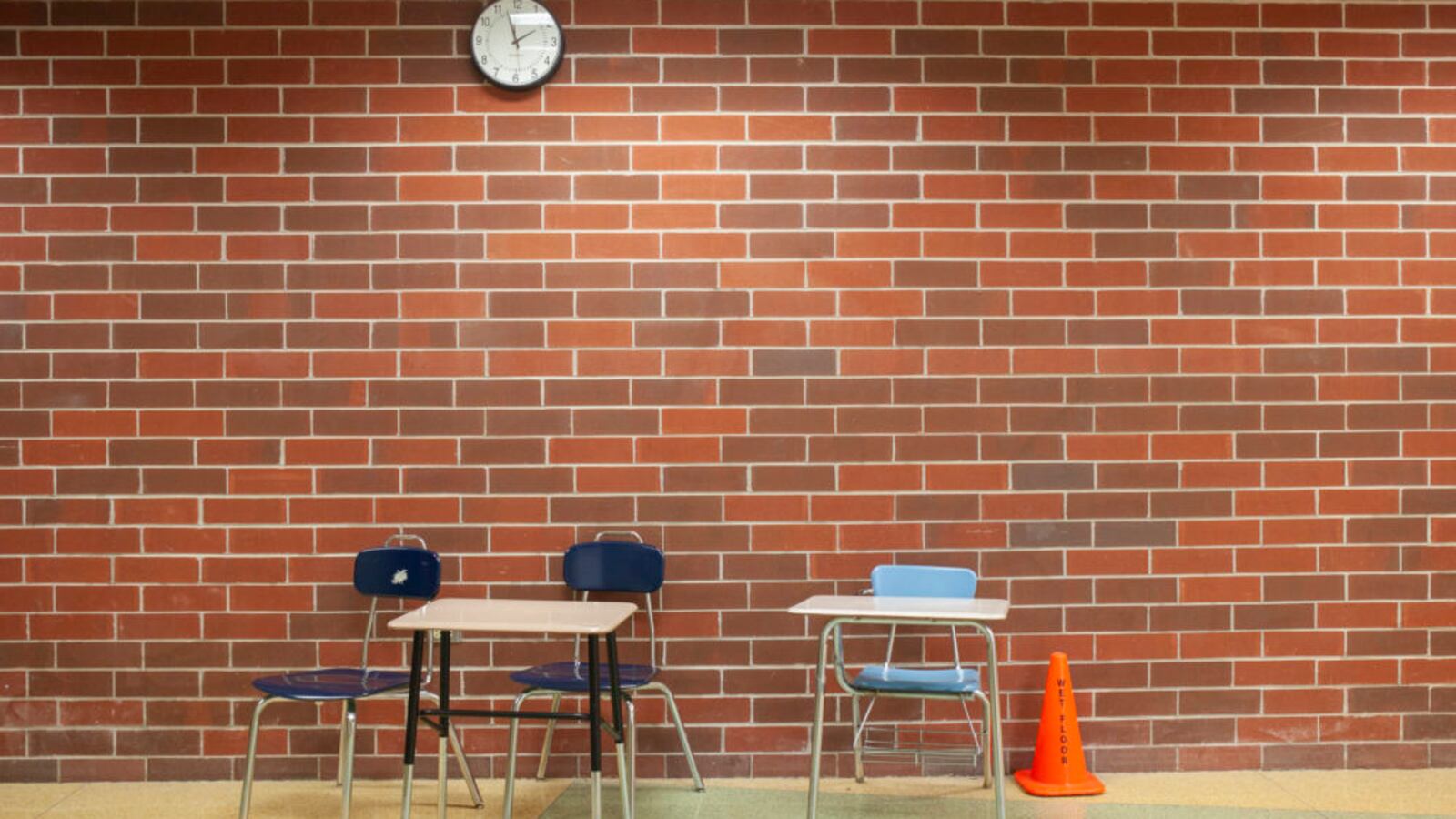All Indiana schools will close through May 1, and all state standardized tests are canceled in response to the quickly spreading coronavirus, Gov. Eric Holcomb announced on Thursday. He also said it’s possible that the closures could be extended through the end of the school year.
“As we get near to May 1, we may have to close permanently,” Holcomb said during a press conference. “But we’ll make that call down the road.”
It’s the first statewide mandate for schools, as Holcomb had previously stopped short of requiring schools to shut their doors. All the public schools in the state have already closed for several weeks, using waivers excusing the missed days or online learning, or breaking for spring recess. But many had tentative return dates set for April.
With the extended closures, schools will not have to administer the federally required ILEARN exam to grades 3-8 this year. The testing window was originally scheduled to open April 20. Other tests, including IREAD-3 for third graders and ISTEP 10 for high schoolers, are also canceled for the year.
Holcomb said he personally shared the plan with U.S. Secretary of Education Betsy DeVos, and the state will continue to seek a waiver from the federal requirement to administer tests.
“If by some miracle we get students back this year, we’ll use that time in class for instruction, not cramming for tests,” Holcomb said.
Officials also raised the possibility that the state may need to grant schools additional waiver days if they are not able to offer remote learning to students. Last week, Holcomb gave schools permission to cancel up to 20 days of instruction as a result of the pandemic.
Some districts aren’t able to provide e-learning, said State Superintendent Jennifer McCormick. The state is working to gather information on how many schools are providing online learning for students versus paper packets of classwork or fully canceling learning.
“There is a gap and I’m not going to pretend that there’s not one,” she said.
The closures will have ripple effects for students going into next school year, said Mariama Shaheed, CEO and principal of Global Prep Academy at School 44 in Indianapolis. No matter when students return, “we can expect some major gaps in learning,” she said.
“Routines and consistency aid all kids,” Shaheed said. “And it’s really tough to be consistent when everything is changing.”
The number of COVID-19 cases in Indiana rose to 56 on Thursday morning, according to the Indiana State Department of Health — more than double the number reported on Monday. The cases have reached 22 of the state’s 92 counties, Holcomb said. Two people have died.
“This [virus] is novel and it is lethal and there is no vaccine yet, but as it turns out sometimes the best defense is a good offense,” Holcomb said. “And we have to go on offense to slow the spread. I know we can’t control everything, but we can, as Hoosiers, control our own behaviors and our own actions.”
By the time the governor announced his decision to close schools until May, Indianapolis high school senior Zoe Bardon wasn’t surprised, and she thinks it is the right decision. “I would much rather stay home than have people get sick,” she said.
But the abrupt end to the year means students at Shortridge High School will miss out on “so many things people were looking forward to in the next couple of months,” Bardon said. They were planning a school performance of the Lion King musical, a senior trip to Belize, prom, and graduation. “All of these things have been thrown up in the air.”
McCormick said the state will work with schools to graduate Indiana’s 75,000 seniors. The state Department of Education will be releasing guidelines for schools to help seniors complete credits and graduation pathways, McCormick said.
“Our goal is to make sure that we graduate seniors,” McCormick said. “Our charge is now to pay attention to those students who have credits that they need to earn, and how are we going to work with our districts to make sure that we get that in for our seniors?”
McCormick also said 94% of the districts in the state are providing students some type of food or food access through local partners.
State exams were already expected to be relatively low stakes because lawmakers approved a “hold-harmless” measure last month that protects schools and teachers from negative consequences from low test scores on the new assessment for two years. But Indiana first asked the federal government for a waiver last week after schools began announcing temporary closures.
Kevin Teasley, who oversees two Gary charter schools as founder and president of the GEO Academies network, said he’s relieved that students won’t have to take state tests this year.
“That’s an extra stress that nobody needs at this point,” he said.
Thursday’s announcement comes after the Centers for Disease Control and Prevention recommended limiting gatherings to fewer than 10 people. Earlier this week, Kansas became the first state to close schools for the rest of the academic year in a more aggressive attempt to contain the coronavirus. One Indiana district has already decided to close buildings for the remainder of the school year and will instruct students remotely instead.

